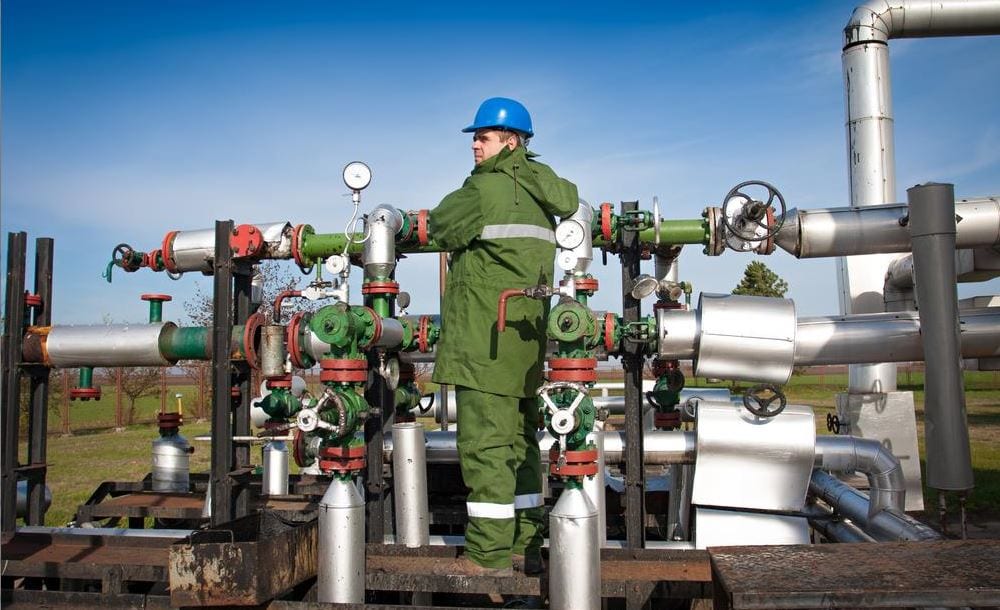
In an era where the energy landscape is experiencing a profound shift towards sustainability and renewable resources, the role of natural gas often finds itself in the midst of discussions about the future of energy. Amidst these conversations, the careerprospects in natural gas distribution stand out as a compelling subject. This article delves into if is natural gas distribution a good career path.
Natural gas, often perceived as a transitional fuel towards a cleaner energy future, offers a myriad of prospects for those eyeing a career in energy distribution. This industry promises stability, technological advancements, and a diverse range of roles, making it an attractive field for individuals seeking a secure and promising career path.
However, while the benefits are abundant, there are crucial considerations about environmental impacts and the industry's susceptibility to changing energy trends that prospective professionals need to bear in mind.
Why Choose A Career In Natural Gas Distribution?
Choosing a career in natural gas distribution offers several compelling reasons:
- Stability and Job Security -The energy sector, particularly natural gas, maintains consistent demand regardless of economic fluctuations. This translates to job stability and security, providing a reliable career path.
- Diverse Job Opportunities - Natural gas distribution offers a wide array of roles, from technicians and engineers to managerial positions and environmental specialists. This diversity allows for career growth and exploration within the industry.
- Technological Advancements -The industry is continually evolving with technological innovations. Professionals in natural gas distribution work with cutting-edge equipment, fostering skill development and offering exposure to the latest advancements in the field.
- Competitive Salaries -Careers in natural gas distribution often come with competitive salaries, especially for those with specialized skills and experience. The potential for growth in this sector leads to rewarding career prospects.
- Contribution to Energy Transition -Natural gas, being a cleaner alternative to traditional fossil fuels, contributes to the ongoing energy transition. Working in natural gas distribution allows individuals to play a part in this shift towards more sustainable energy sources.
- Challenges and Learning Opportunities -The industry poses various challenges that require problem-solving and innovation. This provides professionals with continuous learning opportunities and the chance to make a meaningful impact in the field.
- Global Relevance -Natural gas is a globally relevant energy source, making skills acquired in natural gas distribution applicable across various regions and markets, offering a potentially broader scope for career opportunities.
- Potential for Growth and Development -With the growing focus on sustainable energy, the industry might evolve, presenting opportunities for professionals to adapt, grow, and contribute to the sector's advancements.
What Is Natural Gas Distribution?
Natural gas distribution involves the transportation and delivery of natural gas from production facilities to end-users, such as residential, commercial, and industrial consumers. It's a crucial part of the natural gas supply chain that ensures the safe and efficient delivery of natural gas to where it's needed. Here's a breakdown of the key components and processes involved in natural gas distribution:
- Extraction and Production -Natural gas is extracted from underground reservoirs through drilling and well operations. It undergoes processing to remove impurities, ensuring it meets quality and safety standards before distribution.
- Transmission -After extraction and processing, natural gas travels through pipelines over long distances via high-pressure transmission lines. These pipelines often interconnected across regions or even countries, transport large volumes of natural gas from production sites to distribution points.
- Distribution Networks -Distribution networks are vast systems of pipelines that carry natural gas from the transmission pipelines to local distribution companies (LDCs) or utilities. These networks also consist of compressor stations, valves, and meters to regulate and measure gas flow.
- Local Distribution -Once natural gas reaches local distribution companies or utilities, it undergoes further processing and pressure regulation to make it suitable for consumers. From there, it's distributed through smaller pipelines to residential homes, businesses, and industrial facilities.
- End-User Consumption - Natural gas is utilized for various purposes, including heating homes, generating electricity, powering appliances, and as a fuel source in industrial processes.
- Safety Measures -Safety is paramount in natural gas distribution. Various safety measures, such as leak detection systems, regular inspections, and compliance with safety regulations, are implemented to ensure the secure transportation and use of natural gas.
Natural gas distribution involves a complex network of infrastructure, technologies, and regulatory frameworks designed to ensure the reliable and safe supply of natural gas to meet the energy needs of consumers across various sectors. This process supports the use of natural gas as an important energy source while continuously adapting to advancements in technology and changing environmental standards.
How Do I Get Into The Natural Gas Industry?
Getting into the natural gas industry requires a combination of education, skills, and experience. Here's a breakdown in paragraphs on how you can enter this field:
Education And Training
A foundational step in entering the natural gas industry involves pursuing relevant education. Consider obtaining a degree in fields such as mechanical engineering, chemical engineering, petroleum engineering, environmental science, or a related discipline. Many roles in the industry require a strong understanding of engineering principles, environmental regulations, and energy systems. Additionally, specialized certifications or courses focusing on natural gas distribution, pipeline operations, or safety procedures can significantly enhance your knowledge and make you a more competitive candidate.
Skills And Qualifications
Key skills sought in the natural gas distribution industry include a strong grasp of engineering principles, problem-solving abilities, and familiarity with safety protocols and regulatory compliance. Proficiency in data analysis, technical skills related to pipeline operations, and an understanding of environmental standards are highly valuable. Strong communication skills, the ability to work in a team, and adaptability to changing technologies and industry trends are also desirable traits.
Internships And Entry-Level Positions
Gaining practical experience through internships or entry-level positions is invaluable. Look for opportunities within companies involved in natural gas exploration, production, or distribution. These roles provide hands-on experience, allowing you to understand the day-to-day operations, safety protocols, and the intricacies of the industry. Even roles in customer service, administration, or field technician positions can serve as stepping stones to enter the industry and gain exposure.
Networking And Industry Involvement
Networking is key in any industry, including the natural gas sector. Attend industry conferences, seminars, and workshops to connect with professionals already established in the field. Join relevant industry associations and organizations; they often offer networking opportunities, resources, and access to the latest trends and job openings. Building relationships within the industry can open doors to potential job opportunities and provide valuable insights into the field.
Applying For Positions
Utilize job boards, company career pages, and professional networking sites to explore job openings in the natural gas industry. Tailor your resume to highlight relevant skills, education, and any experience you have in the energy or engineering sectors. Emphasize your knowledge of industry-specific technologies, safety measures, and regulatory compliance. Be prepared for potential interviews by researching the company, understanding industry trends, and being ready to discuss your passion for the field and your potential contributions.
Continued Learning And Adaptability
The natural gas industry is continually evolving with technological advancements and environmental considerations. Stay updated on industry changes, emerging technologies, and regulatory developments. Engaging in ongoing education and training showcases your commitment to staying current in the field. Adaptability and a willingness to learn new practices and methodologies will further strengthen your position in the industry.
25 Best High-Paying Jobs In Natural Gas Distribution?
Geoscientist
In the energy industry, geoscientists are very important. They are in charge of studying the earth's physical features and figuring out how certain things affect it. One way geoscientists will probably use their skills is to find good places to drill to get natural gas and oil. They not only find great places to drill, but they also test the ground to make sure it will be stable when they start working.
Geoscientists usually make around $92,000 a year for their job. You need at least a Bachelor's degree in geoscience or a related area to become one. Some companies also want to see that you have at least a Master's degree.
Solar Power Plant Operator
Solar plants aren't completely self-sufficient, despite what most people think. Most of them need more than one person to keep them going smoothly. This job is very popular because more and more people are interested in green energy sources.
In a technical sense, all you need is a high school education to become a solar plant operator. But the fact that solar plants are getting more complicated is changing what students need to learn. Most companies now want applicants to have vocational training and know how towork with electrical systems.
It is possible for operators to make more than $83,000 a year. While it's messy, this is one of the best-paid jobs in the growing energy field for those who can do it well.
Information Systems Manager
You are in charge of the technology and tools as an information system manager. Instead of installing or managing energy systems like the other jobs on this list, you will be working on something else. Instead, it's your job to make sure that networks and computers work well. Technology and data are very important to modern energy systems. It helps companies be more productive and find chokepoints that could be fixed.
Information system managers are usually in charge of keeping things safe, making records better, and other things. You need a Bachelor's degree in computer and information systems to get this job. But the work is worth it because this is one of the best energy jobs that pays well. If you have the right skills, you could make about $146,000 a year. Managers with a lot of experience can make more than $200,000 a year!
Land Acquisition Specialist
To become a land acquisition expert, you need at least a Bachelor's degree. But this isn't a job that gets too deep into complicated scientific ideas. It instead works on buying land to build new energy systems.
To be more exact, people who work in land acquisition usually set up wind energy sites. They find land that can meet energy needs and make plans for how to make the most of what the land can do.
They also take care of many of the problems that come up with growth, such as getting permits, making purchases, and more. Some people make about $63,000 a year as land purchase specialists.
Material Scientist
A material scientist's main job is to study and figure out how different materials behave chemically. Okay, that sounds like a pretty general description. That's because these scientists want to use their findings to make new products or make current ones better.
What does that have to do with energy? As the use of renewable energy grows, there is a lot of demand for material experts. They try to make things like solar panels, composites, semiconductors, and more better. Material scientists are a big part of the progress being made in green energy. A material scientist makes about $97,000 a year on average. Your first step to getting this well-paying energy job is to get your Bachelor's degree.
Chemist
If you like how complicated chemistry can be, you might really enjoy working as a scientist in the energy industry. In this area, the average salary for a chemist is about $70,000 a year.
Chemists work in the oil and gas businessto make new fuels, lubricants, and other useful things. But even the move toward green energy shows that this well-paying job is still important in the energy field. Chemists are making it possible to make new renewables that use less carbon. You can get into the field with just a Bachelor's degree, but most energy companies want to hire people with Master's degrees or better.
Architectural Manager
When it comes to energy jobs, being a design manager pays really well. About $144,000 a year is the average pay for this job. Some people make more than $200,000 a year, though. To work in this area, you need at least a bachelor's degree. But getting more education and training can help you get better jobs.
The main job of an architectural manager is to plan and construct buildings that use less energy. To make sure that facilities use as few resources as possible, they plan carefully, manage study, and check the accuracy of the work. The job has many parts, but it can make a big difference.
Agricultural Engineer
Biofuels are making it possible for some unrelated fields to join together. As an example, look at farming and energy. Biofuel is making agricultural engineers more important (and more lucrative) in the world of energy creation, even though they seem like two very different jobs.
For this job, you need to make an agricultural businessas efficient as possible. The job has a lot of different parts, but the main thing is to use tools, materials, buildings, and even environmental benefits to make more biofuel goods with fewer resources. Getting things done quickly is important. You need a Bachelor's degree to work in this area, and it can pay about $80,700 a year.
Materials Engineer
A material engineer is not the same as a material scientist. A material engineer's job is to make and improve things that can be used in real life. For instance, they know a lot about different kinds of materials, such as metals, ceramics, plastics, and more. Engineers can make goods that make cars, homes, solar panels, and other things more efficient by using their knowledge of material science.
This job is all about making the things we already have better and more efficient. They improve things and materials! This job pays around $93,000 a year, and you need at least a Bachelor's degree to get it. This is one of the best energy jobs that pays well and will be around for a long time.
Chemical Engineer
Chemical engineers make about $108,000 a year, which makes this a very profitable job in the energy industry. You need a Bachelor's degree in math, chemistry, biology, or a related area. That's because this job involves a lot of science and uses a lot of different fields to solve daily issues.
Their main focus is on fuel and products related to fuel, but they will have to solve problems in a lot of different scenarios as part of their job. Most of the time, these engineers work to make big factories more efficient, try out new methods, and do other things.
Aerospace Engineer
More jobs are being created in the energy field because more people are interested in renewable energy. A lot of the time, aerospace engineers work on rockets, satellites, jets, and other things that can fly through space. But their skills are taking them into the world of wind power.
Aerospace experts are making plans for turbines and other important systems. Their knowledge of things like resistance, force, speed, and other ideas is very useful in this field.
You need a Bachelor's degree in engineering or a related area to become an aerospace engineer. For your work, you'll get one of the best-paying jobs in the energy business. In a year as an aerospace engineer, you can expect to make around $115,000.
Atmospheric Scientist
You need a Bachelor's degree in meteorology or a related area to become an atmospheric scientist. These scientists know a lot about the weather and how it affects things around them. They are the best ones to decide where to put wind turbines to get clean energy.
They can also help make controlling systems that work well. They are very useful because they can watch, follow, and guess what the weather will do. There are already atmospheric scientists working in the energy industry, but the number of jobs will likely grow as more people use green energy. Because there is a lot of demand for this job and it requires a high level of skill, it pays very well. A weather scientist makes about $147,000 a year on average.
Solar Energy Technician
More people will want to work as solar energy workers as more people invest in this type of clean energy. It's not a niche market anymore! Installing, fixing, and taking care of solar equipment is the job of a solar energy technician. They can work for people who own homes, businesses, industrial property, and other types of property.
You can become a solar energy expert without getting a college degree, which is great. Most techs go to vocational schools and learn on the job. People who already know how to do a trade can easily switch to solar energy, which opens up a lot of job possibilities. Technicians who work with solar energy make an average of $72,000 a year.
Nuclear Technician
A lot of nuclear techs work in nuclear power plants to keep things safe. There are a lot of risks that come with nuclear power, and this job makes sure that none of those risks affect communities nearby.
As a nuclear worker, you might be responsible for keeping an eye on how well machines work, making them more efficient, and other things. To make sure that radiation levels stay low, you will also test the water, air, and dirt.
To become a nuclear technician, you need an associate's degree in an area related to nuclear science. A lot of techs get the skills they need to do their jobs well by going to vocational school. This job in energy pays about $82,000 a year on average.
Civil Engineer
Civil engineers make around $87,000 a year, but there are many ways to move up in your career and make even more. The usual level of schooling needed for these jobs is a Bachelor's degree.
When building a new power plant, the energy industry depends on civil engineers a lot. People in this job are in charge of planning and managing very large energy projects. Engineers keep an eye on things, make sure projects stay on track, and help make plans that can work for the area.
We wouldn't have power plants that work without construction engineers. This is a very important job, and it will stay that way even as we switch to renewable energy.
Environmental Engineer
To become an environmental engineer, you need a bachelor's degree in environmental engineering or a related area, such as civil, chemical, or general engineering. This well-paying job in energy needs a deep understanding of how engineering works. If you have the right skills, the job can pay $88,000 a year on average.
What do engineers who work with the earth do? In general, they are involved in a lot of different parts of making energy. The main goal, though, is to encourage improvements to the environment and make sure that methods are as eco-friendly as possible.
Some jobs for engineers are in public health, cleaning, getting rid of trash, and more. As green energy grows in popularity, this job will make power companies safer and cleaner.
Sales Engineer
You wouldn't believe how important sales jobs are in the energy industry. It has nothing to do with being in a store. Sales engineers' main job is to get new projects and help people who are interested in buying find the best goods for their needs.
Solar and wind power companies hire a lot of sales experts. To give you an idea, they might work for a company that sells solar panels to businesses. Their work helps the product get used by more people and brings in new business.
The average salary for a sales engineer is $104,000 per year. This high-paying energy job doesn't have strict educational standards, but a Bachelor's degree in a related field would help you get the job.
Renewable Energy Consultant
This job is like the last one. However renewable energy consultants don't try to sell their services as much as they try to help clients find the best answer for their needs. They know a lot about the technology and usually need a Bachelor's degree in green energy management to do well.
You would work closely with property owners to make a method that works for them in this job. When it comes to landlords, the job is pretty easy. Things get trickier when working with big business properties or industrial complexes that need a lot of energy.
Their job is to give clients advice on energy-saving options and possible improvements they can make to their current set-up. Renewable energy experts make an average of $88,000 a year. This is one of the best-paying jobs in the energy field.
Financial Analyst
There are jobs for financial analysts in almost every business. You need at least a Bachelor's degree to start this job. But a lot of companies would rather see a Master's degree and a lot of work experience.
A financial analyst looks at numbers to help businesses decide what to do and come up with plans that will make them more money. The job of analysts is very important to businesses, and they get paid a lot for it. Most analysts make around $81,000 a year, but the best ones can make $150,000 or more.
Renewable energy is still very new, which makes financial experts even more important in that area. Their work makes sure that these environmentally friendly businesses can keep promoting their ideas.
Solar Project Manager
More and more solar projects are being built across the country, but they all need a leader. All the little things are taken care of by a solar project manager.
They don't always help install solar systems, but their management skills make sure that everything goes smoothly. As the manager, you would plan each step, make sure they have the right permits, and handle all the paperwork that comes with the job.
Managers work with engineers, financial experts, legal teams, and other groups as well. Sometimes it's hard to handle, but it's one of the best-paid jobs out there. The average pay for a solar project manager is $84,000 per year. You don't need a graduate degree to be a manager, but most of them go to trade schools and learn on the job.
Software Developer
If you have a degree in computer science and want to help the green energy movement grow, you might want to think about becoming a software writer. Again, there are a lot of openings for this job in a lot of different industries. However, they're especially sought after in the energy industry.
Software is needed for solar energy creation to work well. The field is very tech-heavy and needs great tools to do well. Here's where you come in! Based on what the company needs, developers may work on different kinds of projects. But most of the time it's software for control and monitoring. There are a lot of different rates for software developers, but the average is about $80,000 a year.
Petroleum Engineer
One of the best-paying jobs in the energy industry is that of a petroleum engineer. You can make about $137,000 a year with just a Bachelor's. Even though the world is slowly switching to renewable energy, it still needs oil and other petroleum goods. An engineer tries to make extraction methods that work well, are safe, and don't cost too much. The goal is to find and use oil supplies in the best way possible.
There's a lot of freedom at this job. For some petroleum engineers, work is done in an office. Others, on the other hand, move a lot or work abroad to keep an eye on oil production and refining.
Wind Turbine Service Technician
Are you looking for a job in energy that pays well and doesn't require a long degree? Think about becoming a repair technician for wind turbines. To get this skilled job, you need to go to vocational schools and learn on the job.
Techs make about $55,000 a year, but many get this job right out of trade school and don't have to worry about student loans. When you add in chances to learn and grow in your job, there's a lot more money-making potential than most people think.
Wind turbine service techs do what the job title says they do: they work with equipment that uses wind power. To keep things moving smoothly, they work on turbines and all of their parts.
Power Plant Operator
The job of a power plant operator is to repair and keep up the systems that make and send energy. That is again a very general statement. There are different kinds of power plant workers, and what they do every day will depend on where they work.
The main goal, though, is to keep the spirit going. As an operator, it's your job to keep the equipment in good shape, fix problems as they come up, and do preventative maintenance to keep problems from happening in the first place.
You don't need a degree to work as a power plant operator. Still, you only need a high school education and some job training to get this job, which pays very well. A lot of operators make $86,000 a year!
Wind Farm Site Manager
A wind farm is a very large area with many windmills that collect energy. It takes a lot of work to keep farms running all the time. The smaller things are taken care of by managers.
They are in charge of the wind farm and all the people who are supposed to take care of the tools. The job needs great leadershipskills, but the duties can be very different. You need to know how to maintain the tools you're taking care of and have enough experience to keep your team working well.
Usually, people who run wind farms need to have at least a Bachelor's degree and some business management experience. These managers get paid about $105,000 a year for their work. In terms of pay, this is by far one of the best green energy jobs you can find.
What Is The Natural Gas Industry Growth Potential?
The natural gas industry has shown significant growth potential, influenced by several key factors:
- Transition Fuel -Natural gas has been considered a transitional fuel due to its lower emissions compared to coal or oil. Many nations and industries are utilizing natural gas as part of their strategies to shift from more carbon-intensive fuels to cleaner energy sources. This positioning has led to increased demand and investment in natural gas infrastructure.
- Global Energy Demand -There's a continual global demand for energy. Natural gas, being a versatile and relatively cleaner fossil fuel, has found increasing use in various sectors, including power generation, heating, industrial processes, and transportation.
- Technological Advancements -Technological innovations, especially in extraction methods (such as fracking) and distribution technologies, have made previously inaccessible natural gas reservoirs economically viable. This has significantly expanded the availability and accessibility of natural gas reserves.
- International Trade -The liquefied natural gas (LNG) market has seen remarkable growth, enabling easier transportation of natural gas across borders. Many countries are investing in LNG infrastructure, leading to a more interconnected global market for natural gas.
- Environmental Regulations and Emission Reduction Goals:Natural gas, being a cleaner alternative to coal and oil, is often seen as a transitional energy source to meet environmental goals. Many nations are incorporating natural gas in their energy mix to reduce carbon emissions, providing a growth opportunity for the industry.
However, it's important to note that the growth potential of the natural gas industry may face challenges and shifts due to various factors. These include:
- Evolving Energy Policies -Shifts in energy policies and increased focus on renewable energy sources may impact the growth potential of the natural gas industry.
- Environmental Concerns -Despite being cleaner than many fossil fuels, natural gas production and distribution still raise environmental concerns, especially regarding methane emissions and their impact on climate change.
- Market Volatility -The industry can be affected by geopolitical issues, market fluctuations, and varying energy prices, impacting investment and growth prospects.
What Do People Working In Natural Gas Distribution Do?
Professionals working in natural gas distribution undertake various roles and responsibilities to ensure the safe and efficient supply of natural gas to consumers. Their duties encompass a range of tasks involved in the transportation and delivery of natural gas from production facilities to end-users. Here are some key roles within the natural gas distribution sector:
- Distribution System Operations -Engineers, technicians, and operators manage the intricate distribution systems, including pipelines, compressor stations, and distribution facilities. They monitor and control gas flow, pressure, and distribution networks to ensure a steady and reliable supply.
- Maintenance and Repair -Maintenance technicians and field workers conduct regular inspections, maintenance, and repairs on pipelines, equipment, and infrastructure to guarantee the integrity and safety of the distribution system.
- Regulatory Compliance and Safety -Professionals ensure compliance with safety standards and regulations. They implement and monitor safety protocols, conduct safety inspections, and respond to emergencies such as gas leaks or equipment failures.
- Customer Service and Support -Customer service representatives interact with consumers, addressing inquiries, billing concerns, and service connections. They provide guidance on safety measures and energy-efficient usage.
- Environmental and Regulatory Compliance -Environmental specialists ensure that the distribution operations meet environmental standards and regulations, monitoring emissions and implementing strategies to minimize the environmental impact.
- Engineering and Planning -Engineers and planners are involved in designing and expanding distribution networks, assessing the efficiency of systems, and implementing technological advancements to improve distribution processes.
- Metering and Measurement -Professionals are responsible for accurate measurement of gas flow and consumption, ensuring precise billing and adherence to regulatory standards.
- Emergency Response and Crisis Management-Teams are trained to respond swiftly to emergencies, manage crises such as leaks or system failures, and mitigate potential risks to public safety.
Frequently Asked Questions
How Does Natural Gas Get Distributed?
Natural gas is distributed through a vast network of pipelines and compressor stations. Once extracted, it's transported via high-pressure transmission pipelines over long distances. Local distribution companies receive the gas, regulate pressure, and deliver it through smaller pipelines to end-users like homes, businesses, and industries.
What Are The Challenges Of Natural Gas Distribution?
Challenges in natural gas distribution include ensuring safety and maintaining infrastructure integrity. Pipeline maintenance, preventing leaks, adhering to safety regulations, and managing environmental concerns (such as methane emissions) are significant challenges. Additionally, fluctuating energy demands and evolving energy policies can impact the industry.
How Do Natural Gas Distribution Companies Make Money?
Natural gas distribution companies make money primarily through service fees charged to consumers for the distribution of gas. These fees cover the operation and maintenance of the distribution network.
How Does Natural Gas Distribution Contribute To Climate Change?
While natural gas is considered a cleaner alternative to other fossil fuels, its distribution and usage can contribute to climate change. Methane emissions during extraction, transportation, and leakage from distribution systems are of concern.
Conclusion
As the world navigates a pivotal period in energy transition, the question of whether natural gas distribution is a promising career path remains pertinent. The industry undoubtedly offers stability, competitive salaries, and a diverse range of job opportunities. Yet, the environmental implications and the evolving dynamics of the energy sector warrant careful consideration.
For those intrigued by technology, and innovation, and seeking a stable career in a continually evolving sector, natural gas distribution can offer a fulfilling path. However, the decision to embark on this career journey should be guided by a thorough understanding of both the industry's potential and its limitations.
The future of natural gas as an energy source is intertwined with global energy trends, and prospective professionals should stay informed and adaptable to potential industry shifts. Ultimately, whether natural gas distribution is a good career path is a decision that relies on individual aspirations, adaptability, and a nuanced understanding of the industry's trajectory.





